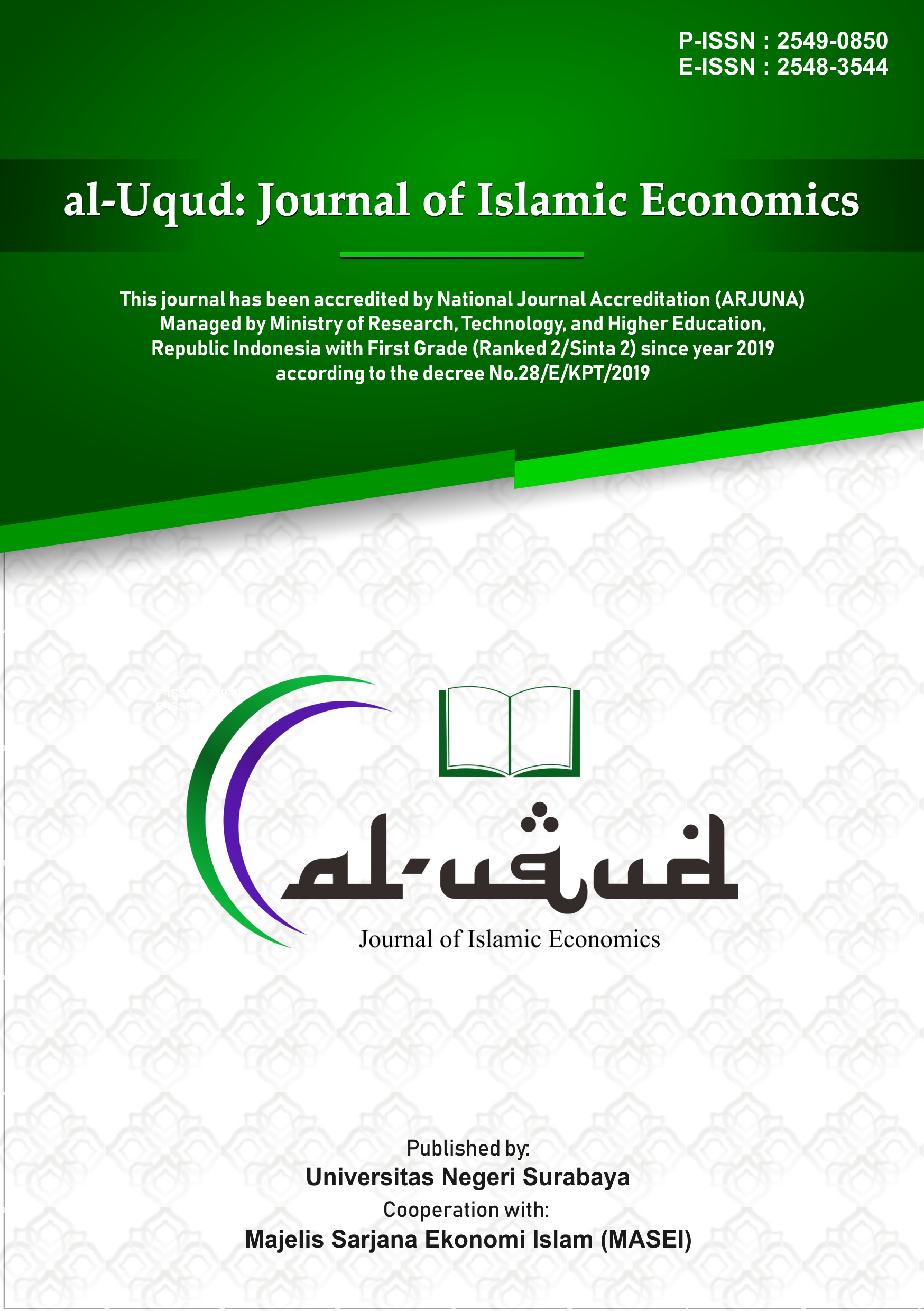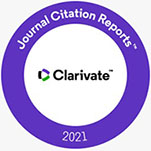Ulema's Business Strategy in Indonesia: A Study Case
DOI:
https://doi.org/10.26740/aluqud.v5n2.p345-365Keywords:
Boarding school, Business strategy, Product, UlemaAbstract
The role of ulema in the life of the Madurese community is not only as a religious leader but also as an advisor in all aspects of life, e.g., marriage, childbirth, aqiqah, and death. In addition, ulema also plays a role in the development of community business, as has been done by several ulemas in Madura, such as one of the caregivers of the most prominent Islamic boarding school in Madura. This study aims to analyse the business strategy of Madurese ulama. It is qualitative research with in-depth interviews about the business strategy developed by ulema in Madura. Four Islamic boarding schools and ulema are the objects of this research, so this research concludes that the ulema in Madura do not have a specific business strategy. However, observing the business practices carried out by the Madurese ulama, the ulema has implemented a business strategy, namely a product differentiation strategy. Product differentiation strategy is a competitive strategy that refers to different customer perceptions of the same product. Thus, all business areas cultivated by ulema will be developed on the condition that they do not conflict with Islamic teachings.
References
Aziz, M. A. (2004). Ilmu Dakwah (1st ed.). Kencana.
Bittmann, T., Bronnmann, J., & Gordon, D. V. (2020). Product differentiation and dynamics of cost pass-through in the German fish market: An error-correction-distance measure approach. Journal of Commodity Markets, 19(May 2018), 100105. https://doi.org/10.1016/j.jcomm.2019.100105
Dhofir, Z. (1994). Tradisi Pesantren Studi Tentang Pandangan Hidup Kyai (1st ed.). LP3S.
Dimyati, M. (1997). Penelitian Kualitatif: Paradigma, Epistemologi, Pendekatan, Metode, dan Terapan (p. 213). Kencana.
Eckberg, D. L., & Hill, L. (1979). The Paradigm Concept and Sociology: A Critical Review. American Sociological Review, 44(6), 925. https://doi.org/10.2307/2094717
Horikoshi, H. (1987). Kyai dan Perubahan Sosial. P3M.
Kalicharan, H. D. (2014). The Effect And Influence Of Country-Of-Origin On Consumers Perception Of Product Quality And Purchasing Intentions. International Business & Economics Research Journal (IBER), 13(5), 897. https://doi.org/10.19030/iber.v13i5.8760
KHMA. (2013). Wawancara.
Kuntowijoyo. (2002). Perubahan Sosial Dalam Masyarakat Agraris Madura 1850-1940. Mata Bangsa.
Mansurnoor, I. A. (1990). IIslam in an Indonesia World: Ulama of Madura. Gadjah Mada University Press.
PolicyLink. (2007). Grocery Store Attraction Strategies A resource guide for community activists and local governments (Second Edi). PolicyLink and Local Initiatives Support Corporation.
Pribadi, Y. (2012). Kiai in Madura: Their Roles in Local Politics in Indonesia. The American Journal of Islamic Social Sciences.
Puspopranoto, S. (2006). Manajemen Bisnis; Konsep, Teori Dan Aplikasi. PPM.
Roziq Ahmad. (2010). Etika Bisnis Islami. UNAIR.
Saputro, M. E. (2011). Muslim localizing democracy:a non-pesantren village in Madura as a preliminary study. Indonesian Journal of Islam and Muslim Societies, 1(2), 297. https://doi.org/10.18326/ijims.v1i2.297-316
Shao, X.-F. (2020). What is the right production strategy for horizontally differentiated product: Standardization or mass customization? International Journal of Production Economics, 223(2), 107527. https://doi.org/10.1016/j.ijpe.2019.107527
Susilo, D., Hidayat, E., & Marta, R. F. (2021). Village public innovations during COVID19 pandemic in rural areas: Phenomena in Madura, Indonesia. Cogent Social Sciences, 7(1). https://doi.org/10.1080/23311886.2021.1905919
Downloads
Published
How to Cite
Issue
Section
License
Copyright (c) 2022 al-Uqud : Journal of Islamic Economics

This work is licensed under a Creative Commons Attribution 4.0 International License.
CC BY 4.0 Abstract views: 225
,
Abstract views: 225
, PDF Downloads: 278
PDF Downloads: 278








